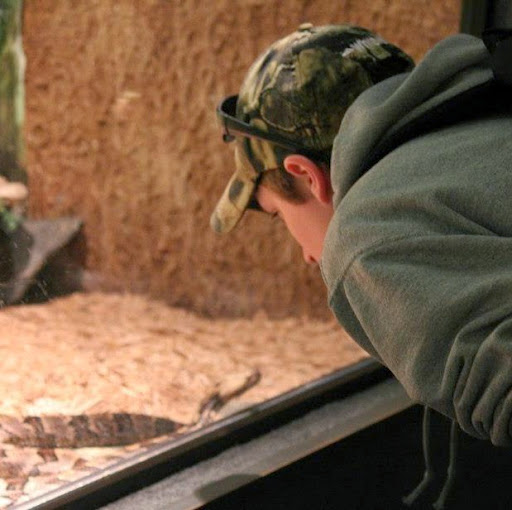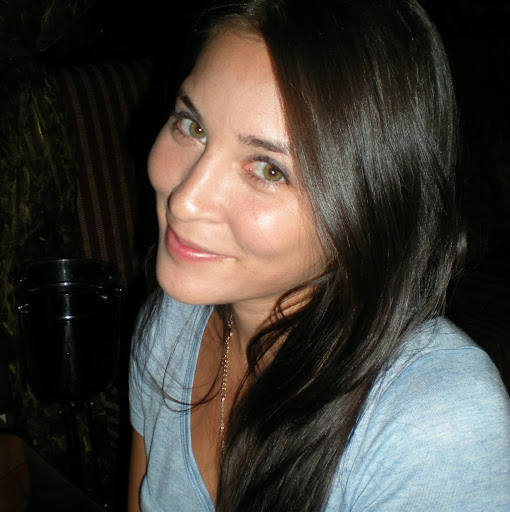Allison K Ryan
age ~33
from Prospect, KY
Allison Ryan Phones & Addresses
- Prospect, KY
- Orlando, FL
- Newberry, FL
- Short Hills, NJ
Work
-
Company:Morris museumJan 2015
-
Position:Museum educator
Education
-
School / High School:William Paterson University of New Jersey- Wayne, NJ2012
-
Specialities:BA in Liberal Studies-Art History and European Studies Track
Skills
Typing • Proficient in French Language • Research • English writing • Western Art • Renaissance Art • Digital Art Photography
Resumes

Senior Tax Associate
view sourceLocation:
Atlanta, GA
Industry:
Accounting
Work:
Pwc
Senior Tax Associate
Senior Tax Associate
Education:
University of Washington - Michael G. Foster School of Business 2016 - 2017
Masters, Accounting University of Central Florida 2012 - 2016
Bachelors, Bachelor of Science In Business Administration, Accounting
Masters, Accounting University of Central Florida 2012 - 2016
Bachelors, Bachelor of Science In Business Administration, Accounting
Skills:
Microsoft Excel
Microsoft Word
Microsoft Office
Time Management
Team Management
Organization Skills
Interpersonal Skills
Budgeting
Microsoft Word
Microsoft Office
Time Management
Team Management
Organization Skills
Interpersonal Skills
Budgeting
Languages:
English

Production Lead
view sourceLocation:
Baltimore, MD
Industry:
Arts And Crafts
Work:
Maryland Institute College of Art Summer Travel Intensive May 2013 - Jul 2013
Student
Raise the Bar 2011 - 2011
Summer Fashion Design and Illustration Intern
Rutgers University Health Sciences Center 2010 - 2010
Freelance Medical Illustrator
Inprnt 2010 - 2010
Production Lead
Student
Raise the Bar 2011 - 2011
Summer Fashion Design and Illustration Intern
Rutgers University Health Sciences Center 2010 - 2010
Freelance Medical Illustrator
Inprnt 2010 - 2010
Production Lead
Education:
Maryland Institute College of Art 2010 - 2015
Bachelors, Bachelor of Fine Arts, Illustration Maryland Institute College of Art 2014
Millburn Senior High School 2010
Bachelors, Bachelor of Fine Arts, Illustration Maryland Institute College of Art 2014
Millburn Senior High School 2010
Skills:
Fashion Illustration
Fashion Design
Medical Illustration
Digital Illustration
Illustrator
Book Illustration
Graphic Design
Traditional Art Media
Fashion
Illustration
Painting
Books
Drawing
Microsoft Office
Microsoft Word
Sketching
Photoshop
Powerpoint
Vector Illustration
Fashion Design
Medical Illustration
Digital Illustration
Illustrator
Book Illustration
Graphic Design
Traditional Art Media
Fashion
Illustration
Painting
Books
Drawing
Microsoft Office
Microsoft Word
Sketching
Photoshop
Powerpoint
Vector Illustration

Allison Ryan
view source
Allison Alilison Ryan
view source
Sales Manager
view sourceWork:
Ubs
Sales Manager
Sales Manager

Allison Ryan
view source
Allison Ryan
view source
Allison Ryan
view sourceUs Patents
-
Methods For Non-Invasive Prenatal Ploidy Calling
view source -
US Patent:20190256908, Aug 22, 2019
-
Filed:Apr 30, 2019
-
Appl. No.:16/399991
-
Inventors:- San Carlos CA, US
George Gemelos - New York NY, US
Milena Banjevic - Los Altos Hills CA, US
Allison Ryan - Redwood City CA, US
Zachary Demko - San Francisco CA, US
Matthew Hill - Menlo Park CA, US
Bernhard Zimmermann - San Mateo CA, US
Johan Baner - San Francisco CA, US -
Assignee:Natera, Inc. - San Carlos CA
-
International Classification:C12Q 1/6869
C12Q 1/6862
C12Q 1/6806
G16B 20/00
C12Q 1/6827
C12Q 1/6874
C12Q 1/6883 -
Abstract:The present disclosure provides methods for determining the ploidy status of a chromosome in a gestating fetus from genotypic data measured from a mixed sample of DNA comprising DNA from both the mother of the fetus and from the fetus, and optionally from genotypic data from the mother and father. The ploidy state is determined by using a joint distribution model to create a plurality of expected allele distributions for different possible fetal ploidy states given the parental genotypic data, and comparing the expected allelic distributions to the pattern of measured allelic distributions measured in the mixed sample, and choosing the ploidy state whose expected allelic distribution pattern most closely matches the observed allelic distribution pattern. The mixed sample of DNA may be preferentially enriched at a plurality of polymorphic loci in a way that minimizes the allelic bias, for example using massively multiplexed targeted PCR.
-
Methods For Non-Invasive Prenatal Ploidy Calling
view source -
US Patent:20150072872, Mar 12, 2015
-
Filed:Nov 18, 2014
-
Appl. No.:14/546321
-
Inventors:- San Carlos CA, US
George Gemelos - New York NY, US
Milena Banjevic - Los Altos Hills CA, US
Allison Ryan - Redwood City CA, US
Zachary Demko - Los Altos Hills CA, US
Matthew Hill - Redwood City CA, US
Bernhard Zimmermann - San Mateo CA, US
Johan Baner - Stockholm CA, US -
International Classification:C12Q 1/68
G06F 19/00
G06F 19/18 -
US Classification:506 2, 506 9, 702 19
-
Abstract:The present disclosure provides methods for determining the ploidy status of a chromosome in a gestating fetus from genotypic data measured from a sample of DNA from the mother of the fetus and from the fetus, and from genotypic data from the mother and optionally also from the father. The ploidy state is determined by using a joint distribution model to create a set of expected allele distributions for different possible fetal ploidy states given the parental genotypic data, and comparing the expected allelic distributions to the pattern of measured allelic distributions measured in the mixed sample, and choosing the ploidy state whose expected allelic distribution pattern most closely matches the observed allelic distribution pattern. In an embodiment, the mixed sample of DNA may be preferentially enriched at a plurality of polymorphic loci in a way that minimizes the allelic bias.
-
Methods For Non-Invasive Prenatal Ploidy Calling
view source -
US Patent:20150051087, Feb 19, 2015
-
Filed:Nov 4, 2014
-
Appl. No.:14/532666
-
Inventors:- San Carlos CA, US
George Gemelos - New York NY, US
Milena Banjevic - Los Altos Hills CA, US
Allison Ryan - Redwood City CA, US
Zachary Demko - Los Altos Hills CA, US
Matthew Hill - Menlo Park CA, US
Bernhard Zimmermann - San Mateo CA, US
Johan Baner - San Francisco CA, US -
International Classification:C12Q 1/68
-
US Classification:506 2
-
Abstract:The present disclosure provides methods for determining the ploidy status of a chromosome in a gestating fetus from genotypic data measured from a mixed sample of DNA comprising DNA from both the mother of the fetus and from the fetus, and optionally from genotypic data from the mother and father. The ploidy state is determined by using a joint distribution model to create a plurality of expected allele distributions for different possible fetal ploidy states given the parental genotypic data, and comparing the expected allelic distributions to the pattern of measured allelic distributions measured in the mixed sample, and choosing the ploidy state whose expected allelic distribution pattern most closely matches the observed allelic distribution pattern. The mixed sample of DNA may be preferentially enriched at a plurality of polymorphic loci in a way that minimizes the allelic bias, for example using massively multiplexed targeted PCR.
-
Methods For Non-Invasive Prenatal Ploidy Calling
view source -
US Patent:20140336060, Nov 13, 2014
-
Filed:Jul 29, 2014
-
Appl. No.:14/446232
-
Inventors:- San Carlos CA, US
George Gemelos - New York NY, US
Milena Banjevic - Los Altos Hills CA, US
Allison Ryan - Redwood City CA, US
Zachary Demko - Los Altos Hills CA, US
Matthew Hill - Redwood City CA, US
Bernhard Zimmermann - San Mateo CA, US
Johan Baner - Stockholm, SE -
International Classification:C12Q 1/68
G06F 19/22 -
US Classification:506 2
-
Abstract:The present disclosure provides methods for determining the ploidy status of a chromosome in a gestating fetus from genotypic data measured from a sample of DNA from the mother of the fetus and from the fetus, and from genotypic data from the mother and optionally also from the father. The ploidy state is determined by using a joint distribution model to create a set of expected allele distributions for different possible fetal ploidy states given the parental genotypic data, and comparing the expected allelic distributions to the pattern of measured allelic distributions measured in the mixed sample, and choosing the ploidy state whose expected allelic distribution pattern most closely matches the observed allelic distribution pattern. In an embodiment, the mixed sample of DNA may be preferentially enriched at a plurality of polymorphic loci in a way that minimizes the allelic bias.
-
Methods For Non-Invasive Prenatal Ploidy Calling
view source -
US Patent:20140162269, Jun 12, 2014
-
Filed:Feb 12, 2014
-
Appl. No.:14/179399
-
Inventors:- San Carlos CA, US
George Gemelos - New York NY, US
Milena Banjevic - Los Altos Hills CA, US
Allison Ryan - Redwood City CA, US
Zachary Demko - Los Altos Hills CA, US
Matthew Hill - Redwood City CA, US
Bernhard Zimmerman - San Mateo CA, US
Johan Baner - Stockholm, SE -
Assignee:Natera, Inc. - San Carlos CA
-
International Classification:C12Q 1/68
-
US Classification:435 611
-
Abstract:The present disclosure provides methods for determining the ploidy status of a chromosome in a gestating fetus from genotypic data measured from a sample of DNA from the mother of the fetus and from the fetus, and from genotypic data from the mother and optionally also from the father. The ploidy state is determined by using a joint distribution model to create a set of expected allele distributions for different possible fetal ploidy states given the parental genotypic data, and comparing the expected allelic distributions to the pattern of measured allelic distributions measured in the mixed sample, and choosing the ploidy state whose expected allelic distribution pattern most closely matches the observed allelic distribution pattern. In an embodiment, the mixed sample of DNA may be preferentially enriched at a plurality of polymorphic loci in a way that minimizes the allelic bias.
-
Methods For Non-Invasive Prenatal Ploidy Calling
view source -
US Patent:20140100134, Apr 10, 2014
-
Filed:Dec 9, 2013
-
Appl. No.:14/100928
-
Inventors:- San Carlos CA, US
George Gemelos - New York NY, US
Milena Banjevic - Los Altos Hills CA, US
Allison Ryan - Redwood City CA, US
Zachary Demko - Los Altos Hill CA, US
Matthew Hill - Redwood City CA, US
Bernhard Zimmermann - San Mateo CA, US
Johan Baner - Stockholm, SE -
Assignee:Natera, Inc. - San Carlos CA
-
International Classification:G06F 19/12
-
US Classification:506 9, 435 611, 702 20, 702 19
-
Abstract:The present disclosure provides methods for determining the ploidy status of a chromosome in a gestating fetus from genotypic data measured from a sample of DNA from the mother of the fetus and from the fetus, and from genotypic data from the mother and optionally also from the father. The ploidy state is determined by using a joint distribution model to create a set of expected allele distributions for different possible fetal ploidy states given the parental genotypic data, and comparing the expected allelic distributions to the pattern of measured allelic distributions measured in the mixed sample, and choosing the ploidy state whose expected allelic distribution pattern most closely matches the observed allelic distribution pattern. In an embodiment, the mixed sample of DNA may be preferentially enriched at a plurality of polymorphic loci in a way that minimizes the allelic bias.
Lawyers & Attorneys

Allison Ansell Ryan - Lawyer
view sourceOffice:
Ansell Grimm & Aaron A Professional Corporation
Mailing Address:
P.O. Box CN7807, Ocean Township, NJ, 07712
Phone:
7329221000 (Phone), 7329222456 (Fax)
Specialties:
Family Law
Memberships:
Monmouth Bar Association and New Jersey State Bar Association
American Academy of Matrimonial Lawyers.
American Academy of Matrimonial Lawyers.
ISLN:
909412539
Admitted:
1991, Massachusetts and New Jersey
University:
American University, B.A., 1987
Law School:
Western New England College, J.D., 1990
Links:
Site
Biography:
Works exclusively in areas of divorce litigation, child custody and family law matters. BA American University; JD Western New England School of Law. Former law clerk Honorable Alexander D. Lehrer, th...

Allison Ryan - Lawyer
view sourceOffice:
Hogan Lovells US LLP
ISLN:
922017681
Admitted:
2010
University:
Lipscomb University, B.A., 2005
Law School:
Vanderbilt University Law School, J.D., 2009
Classmates

Allison Ryan
view sourceSchools:
Hackettstown High School Hackettstown NJ 2005-2009
Community:
John Johnson, Sal Madonna

Allison Ryan
view sourceSchools:
Seafood Harbor Elementary School Seaford NY 1995-2000, Seaford Junior High School Seaford NY 2000-2004
Community:
Sherman Duncan, William Seward, Fran Cast, Cynthia Cindy, Carol Cole

Allison Tabor (Ryan)
view sourceSchools:
Duxbury High School Duxbury MA 1980-1984

Allison Ryan
view sourceSchools:
Appleton East High School Appleton WI 2002-2006
Community:
Jim Kunstman, Penny Lidbeck, Dani Greenfield

Allison Ryan
view sourceSchools:
Cherokee Lane Elementary School Adelphi MD 1963-1969, Buck Lodge Middle School Adelphi MD 1967-1970

Allison Ryan (Wagner)
view sourceSchools:
Champlain High School Pembroke Morocco 1988-1992
Community:
Terry Fraser, Bill Laundry, Heather Dowdall, Sheila Monaghan

Allison Ryan
view sourceSchools:
Poulsbo Junior High School Poulsbo WA 1999-2002
Community:
Carolynn Scott

Allison Ryan
view sourceSchools:
Coronation Composite High School Coronation Azores 1996-2000
Community:
Dianne Wilkie, Raelene Holtner, Mike Frost
Googleplus

Allison Ryan
Lived:
Hallandale, fl
Lecanto, fl
Gainesville, fl
Lecanto, fl
Gainesville, fl
Work:
Whispering pines park - Lifeguard
Bicentennial park pool - Lifeguard
Bicentennial park pool - Lifeguard
Education:
Santa Fe Community College - Science
Relationship:
Single
About:
23. Reptile, comic book, video game nerd. Born in a city but I love the slow pace of the country. I want to make my mark on the world before I die. :) I have recently discovered archery and just found...

Allison Ryan
Work:
American Dairy Association Mideast - Communications Manager (2008)

Allison Ryan
Education:
University of Texas at Austin

Allison Ryan

Allison Ryan
Bragging Rights:
I am freaking amazing !

Allison Ryan

Allison Ryan

Allison Ryan
Myspace
Youtube

Allison Cooper Ryan
view source
Allison Bacot Ryan
view source
Allison Ryan
view source
Allison Henry Ryan
view source
Allison Renee Ryan
view source
Allison Ansell Ryan
view source
Allison Ryan
view source
Allison Ryan
view sourceGet Report for Allison K Ryan from Prospect, KY, age ~33










